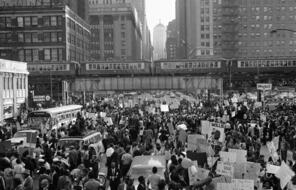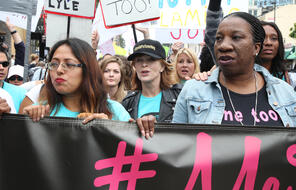Japanese Diplomats
At a Glance
Language
English — USSubject
- History
- Resistance
- Genocide
In Japan, the occupation of Nanjing was largely couched within the larger war on the Asian mainland. Japanese politicians provided rationalizations for the brutality of Japanese troops in China as early as September 1937. Prince Konoe, prime minister of Japan, addressed the Diet (the Japanese legislature), explaining that the army’s military actions were not directed against the Chinese people but against the Chinese government and its armies. Konoe said, “The only measure Japan can adopt is to administer a crushing blow to the Chinese army and make it completely lose its will to fight. If China fails to realize her mistakes and persists in her resistance, Japan is prepared for protracted hostilities.”
Several months later, Japanese ambassador to the United States Hiroshi Saito elaborated on Konoe’s position in a speech printed in the journal World Affairs at the same as time the events were occurring in Nanjing (December 1937):
The conflict in the Far East is by no means as simple in origin as some Europeans and Americans seem to think. The trouble did not begin last July. It is a result of the conditions of China, which has caused the invasion of foreign armies for more than a century and is the reason for the presence there today of British, French, Italian, Dutch and American troops. If China’s house were in order, there would be no need for the presence of these foreign forces or of Japan’s present actions. In fact, if law and order were maintained in China, if China were a unified and stabilized nation, it would be able to “drive all foreigners into the sea”—which has been the objective of many of its anti-foreign movements.
Who is to blame for the condition of China? Is it Great Britain, which sought for decades to help successive Chinese governments to organize their two principal sources of revenue? Is it France, which has sent more missionaries and teachers to them than to all other backward nations combined? Is it Japan, which almost staked her existence in a war with Russia to prevent “the break-up of China”? . . . It is difficult for many Japanese to understand how so many people of the West can fail to see that the trouble is not of foreign but of Chinese making.
The present conflict has been forced upon Japan, and Japan wants it to end as quickly as possible. But she is determined to end it in a way so decisive that a situation like the present can never recur. Our objective, therefore, is a genuine change of heart on the part of those in power at Nanjing. 1
- 1Pei-kai Cheng, Michael Lestz, and Jonathan D. Spence, eds., The Search for Modern China: A Documentary Collection (New York: W. W. Norton & Company, 1999), 316–19.
How to Cite This Reading
Facing History & Ourselves, "Japanese Diplomats," last updated November 30, 2018.











